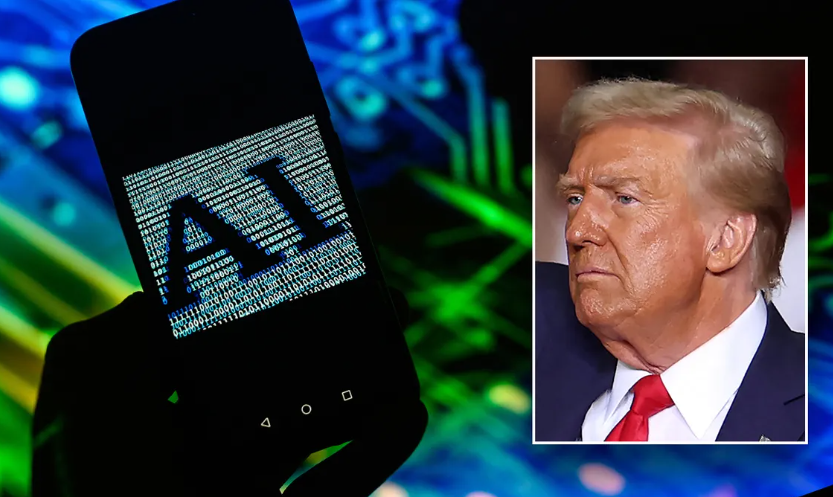The Trump administration announced a sweeping expansion of artificial intelligence integration across federal agencies, marking a significant step in the effort to modernize government operations and strengthen America’s global technology leadership. The new initiative, coordinated through the General Services Administration (GSA), grants streamlined access to Meta’s Llama AI models across all federal departments, including defense and national security.
This government-wide adoption eliminates the need for individual agency negotiations, a process that previously slowed technological upgrades. The agreement is being described as a “landmark arrangement,” intended to accelerate efficiency and reduce duplication of effort across federal operations.
President Donald Trump, who issued an executive order earlier this year directing agencies to remove barriers to AI adoption, praised the agreement as evidence of America’s determination to lead the world in artificial intelligence. “With the right government policies, we can solidify our position as the global leader in AI and secure a brighter future for all Americans,” the president stated.
Meta CEO Mark Zuckerberg echoed the administration’s optimism, framing the deal as a way to bring AI innovation to the forefront of public service. “America is leading on AI and we want to make sure all Americans see the benefit of AI innovation through better, more efficient public services,” Zuckerberg said. He emphasized that Llama’s open-source models will help agencies deliver services faster and with greater accuracy.
The agreement also allows national defense and security organizations access to Meta’s AI resources, a shift from past restrictions. In a blog post, Meta confirmed it would make its models available to agencies working on defense and security, as well as private sector partners supporting their missions. That means AI could soon be deployed to enhance intelligence gathering, streamline logistics, and improve cybersecurity resilience.
The list of private companies partnering to integrate AI into federal work is extensive, including Microsoft, IBM, Palantir, Amazon Web Services, Anduril, Lockheed Martin, Deloitte, and Oracle. These partnerships point toward a broad coalition of technology providers working with government to boost America’s competitive edge.
Conservatives have long argued that government must operate with the same technological efficiency as the private sector. The Trump administration’s decision to embrace AI reflects that principle. Rather than allowing bureaucratic stagnation to slow progress, the administration is clearing pathways for rapid deployment of tools that could save taxpayers time and money.
Critics often raise concerns about data privacy, algorithmic bias, and government overreach, but supporters counter that the real risk lies in America falling behind global adversaries. China and other nations are racing ahead in AI development, often without the safeguards and accountability the United States is implementing. For the Trump administration, adopting AI is not just about efficiency — it’s about national survival in a new era of technological warfare and global competition.
The move also reflects Trump’s broader push to “America First” in the technological arena. Rather than ceding leadership to Silicon Valley progressives or foreign governments, this plan ensures direct alignment between federal agencies, patriotic private companies, and American innovation.
Still, questions remain about implementation. How quickly will agencies integrate AI into their daily operations? Will there be enough oversight to prevent waste or misuse? The administration insists the answer lies in strategic partnerships and clear directives from the White House. With Trump’s executive order as the foundation, each agency has both the authority and responsibility to implement AI responsibly.
Conservative observers see this as a breakthrough moment. For decades, Americans have dealt with outdated government systems, endless paperwork, and bureaucratic inefficiency. AI-powered tools could streamline benefits distribution, improve Veterans Affairs responsiveness, modernize tax collection, and protect citizens from cybersecurity threats.
From a political standpoint, the initiative also highlights the Trump administration’s commitment to innovation. While critics attempt to paint Trump’s leadership as reactionary, his administration has consistently pursued policies that secure America’s place at the forefront of the 21st-century economy. Expanding AI across agencies is one more example of forward-looking governance rooted in conservative principles of efficiency, security, and accountability.
As President Trump positions America for another four years of leadership on the global stage, the expansion of AI stands as a bold declaration: the United States will not allow foreign adversaries or progressive ideologues to dictate the future. America will lead, innovate, and protect its citizens — and artificial intelligence is now a central weapon in that mission.

